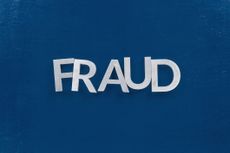Taylor Swift's 'Eras Tour' and a New Tax Rule? What To Know
Forget about Taylor Swift and Travis Kelce dating. What do 'Eras Tour' tickets have to do with your taxes?


If you're a Swiftie or an NFL fan, you might not care so much that Travis Kelce of the Kansas City Chiefs and Taylor are dating. But all the excitement and talk about Taylor Swift has also raised questions about what Eras Tour tickets might have to do with your taxes.
So, to sort out some of the confusion, here’s what you need to know about how reselling concert tickets (not just those for Swift’s tour) might impact your tax bill.
Ticketmaster, StubHub tickets and your taxes
It's not uncommon to come across Eras Tour, Beyonce Renaissance Tour, and other tickets being resold on platforms like StubHub and Ticketmaster, particularly during times of high demand. Assuming, for instance, Swift's tour tickets originally sell for around $449, ticket resellers can profit substantially from selling coveted seats for $1,300 or more. That’s where tax could have come in if the IRS hadn't jumped in to change things.

Sign up for Kiplinger’s Free E-Newsletters
Profit and prosper with the best of expert advice on investing, taxes, retirement, personal finance and more - straight to your e-mail.
Profit and prosper with the best of expert advice - straight to your e-mail.
Ticket resellers may have been subject to new IRS reporting requirements if, as in that example, they resold ticket(s) online and profited over $600. Form 1099-K reporting rules apply if you sell goods or services (not just concert tickets) online and receive payment through third-party payment networks like Stripe, PayPal, Venmo, and others.
That is the new “$600 rule.” For the 2022 tax year, the IRS delayed the implementation of the rule. That delay was supposed to give payment networks more time to prepare to send millions more 1099-K forms and online sellers more time to understand the new requirement. And just recently, the agency has decided to delay the $600 rule again until 2024.
So, for now, unless you have over $20,000 in payments for goods or services through online marketplaces or third-party payment processors in 2023, you don't have to worry about the $600 rule.
Online sales 1099-K reporting
Many businesses are subject to 1099-K reporting requirements. A few examples include popular platforms like Etsy, Depop, eBay, Poshmark, etc. (But this is far from an all-inclusive list.) If you need clarity on whether you will receive a 1099-K, most of these sites have information on their websites that can help.
However, personal transactions (e.g., personal payments to friends and family) on payment networks, including Venmo, PayPal, Cash App, etc., aren't considered "payments for goods and services." The 1099-K third-party payment network reporting rule doesn't apply to payments made that were gifts or other personal money payments to family and friends.
For now, the $600 rule won't apply for the 2023 tax year (i.e., federal income tax returns that are normally filed in April 2024). That means if you received payment (for goods or services) over $600 through online platforms this year, you shouldn't have to worry about receiving a 1099-K form by January 31, 2024, to use when you file your 2023 federal income tax return.
For 2024, the IRS is planning to phase in a $5,000 reporting threshold. To learn more, see 1099K Tax Reporting: What You Need To Know.
Will you have to pay taxes on your ticket sales?
Receiving a 1099-K doesn’t necessarily mean you will have to pay taxes on your ticket sales. For example, on its website, Ticketmaster tells sellers that the 1099-K “just provides the total gross transactional amount processed by Ticketmaster during that calendar year.” As always, your tax liability depends on several factors, including taxable income, tax deductions, and credits.
However, whether you receive a 1099-K or not, it is important to report any taxable income on your federal income tax return as required by the IRS. (This typically includes profits from reselling concert tickets.)
If you are worried about the impact of your online selling on your tax liability, consult a trustworthy tax professional.
Related Content

As the senior tax editor at Kiplinger.com, Kelley R. Taylor simplifies federal and state tax information, news, and developments to help empower readers. Kelley has over two decades of experience advising on and covering education, law, finance, and tax as a corporate attorney and business journalist.
-
 Charitable Remainder Trust: The Stretch IRA Alternative
Charitable Remainder Trust: The Stretch IRA AlternativeThe SECURE Act killed the stretch IRA, but a properly constructed charitable remainder trust can deliver similar benefits, with some caveats.
By Brandon Mather, CFP®, CEPA, ChFEBC® Published
-
 Three Ways to Take Control of Your Money During Financial Literacy Month
Three Ways to Take Control of Your Money During Financial Literacy MonthBudgeting, building an emergency fund and taking advantage of a multitude of workplace benefits can get you on track and keep you there.
By Craig Rubino Published
-
 Retirees Face Significant Tax Bills Due to Fraud
Retirees Face Significant Tax Bills Due to FraudFraud A new report sheds light on how older adult scam victims end up with big tax bills and lost retirement savings.
By Kelley R. Taylor Last updated
-
 Tax Day: Is the Post Office Open Late?
Tax Day: Is the Post Office Open Late?Tax Filing Tax Day means some people need to mail their federal income tax returns.
By Kelley R. Taylor Published
-
 High Earners: Beware of These Illegal Schemes to Lower Taxes
High Earners: Beware of These Illegal Schemes to Lower TaxesTax Schemes The IRS says high-income filers are targets for several illegal tax schemes.
By Katelyn Washington Last updated
-
 Mailing Your Tax Return This Year? What to Know Before You Do
Mailing Your Tax Return This Year? What to Know Before You DoTax Filing There are plenty of reasons not to mail your tax return this year, but here’s what you should know if you are.
By Katelyn Washington Last updated
-
 IRS Warning: Beware of Smishing and 'Helper' Tax Scams
IRS Warning: Beware of Smishing and 'Helper' Tax ScamsScams Tax season is a time to look out for email and text message scams.
By Kelley R. Taylor Last updated
-
 Most Expensive States to Live in for Homeowners
Most Expensive States to Live in for HomeownersProperty Taxes High property tax bills make the places on this list the most expensive states for homeowners to live in.
By Katelyn Washington Last updated
-
 Don’t Miss This $2,500 Tax Break for Paying Your Student Loan
Don’t Miss This $2,500 Tax Break for Paying Your Student LoanTax Deductions Do you qualify for the student loan interest deduction this year?
By Katelyn Washington Last updated
-
 How Much Richer Could You Be Without a Big Tax Refund?
How Much Richer Could You Be Without a Big Tax Refund?Tax Refunds A big tax refund isn’t a reason to celebrate if you overpaid throughout the year. Here’s how much money your interest-free loan to the government could have cost you.
By Katelyn Washington Last updated